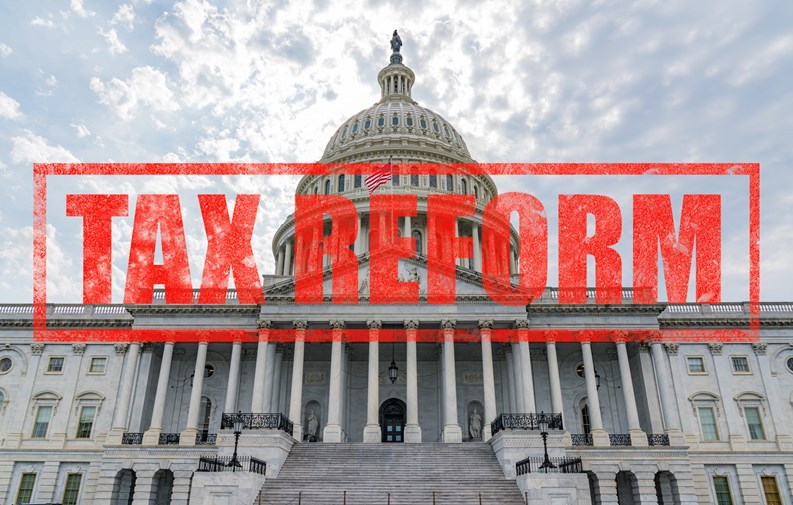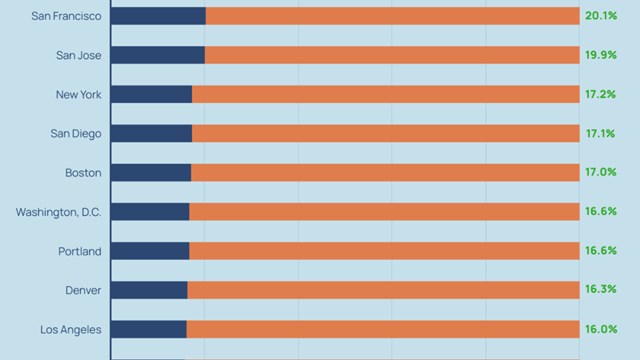(Updated on 12/22/17 to reflect that President Trump signed the new tax bill into law)
On December 22, 2017, President Trump signed into law a major $1.5 trillion tax plan that Congress had earlier passed, the first re-writing of our tax laws in over 30 years. The big question now is, who wins and who loses? The answer may not be readily available for some years, at least until we see if the projected increase in jobs and economic activity promised by the boosters of this new law actually materializes. In the meantime, what’s in there that affects condo and co-op owners in New York City and its suburbs?
Deductions
One major goal of the new law is to simplify the tax code and tax filings by encouraging taxpayers to take a standard deduction rather than to itemize deductions. To achieve this, the legislation nearly doubles the standard deduction from $6,500/$13,000 for individuals and couples to $12,000/$24,000 respectively. This provision can be viewed as an attempt to provide tax relief to salaried workers who live in states or regions that have generally lower taxes overall, as itemizing clearly favors taxpayers in higher tax states and regions, because they can deduct state and local income taxes. Additionally, the tax code has been used for decades as a boon to home ownership, as it provides deductions for interest charges derived from mortgage payments and for real estate taxes—the main deductions taken by homeowners nationally.
The major changes affecting homeowners in our region—and that includes condominium and co-op owners—relate to the deductibility of state and local income taxes and local property taxes, and deductions for mortgage interest.
Under previous law, individuals who itemize may deduct all state and local income taxes and real estate taxes. With this new law, there will be a $10,000 cap on all state and local taxes, including both income and real estate taxes.
“Based on the limited information we have, it is contemplated that the co-op or condo owner will be allowed to combine state and local income taxes and real estate taxes and deducted up to $10,000,” Peter E. Buell, CPA and Partner at the New York city office of accounting firm Marcum LLP, told The Cooperator prior to the bill’s passage in Congress.
What that effectively means is that, if a co-op owner has a $1,000 annual pass-through of real estate taxes from the co-op corporation, and pays up to $9,000 a year in New York State and City income taxes, their deduction will be unchanged. But if their combined income and real estate taxes exceed that amount, they will have less deduction, resulting in a higher taxable income. When one considers that the typical real estate tax bill for a two-bedroom condominium in Manhattan is in excess of $1,000 a month, it appears that Manhattan apartment dwellers are on the losing side of this change.
One offset to this potential increase in taxable income resulting from lower deductible expenses is the reduction in marginal tax rates, though it’s not yet known what the ultimate effect will be.
Mortgage Interest Deduction
Another provision of the new legislation is a change to the mortgage interest deduction. Buell explained: “Both co-op and condo owners will only be able to deduct the interest on $750,000 of mortgage principle. In a simple example, if either a co-op and condo owner had a mortgage of $1,000,000 at an interest rate of 10 percent, they would incur interest of $100,000, but they would only be able to deduct $75,000 of mortgage interest on their tax return.” Under the new scenario, they lose $25,000 of deduction in this example. Clearly, in a city such as New York where jumbo mortgages are more typical than not, homeowners will be penalized for choosing to live here.
Dropping Values?
Will this change in the tax structure affect the value of your home? Terence Tener, Managing Member at Manhattan’s KTR Real Estate Advisors LLC, said: “New York and the surrounding boroughs are burdened with relatively modest real estate taxes. The very high-end of the market represents the only component of the entire market that might be affected. However, the wealth that is characterized by it would likely offset any potential downside and as such, prices should sustain themselves.
"The surrounding suburbs are another issue," he continued. "Their taxes tend to represent some of, if not the highest, in the country. That could spell a problem. As the cost of occupancy because of the lack of write off escalates, values will stagnate possibly even decline and the voters will likely hold their representatives responsible.”
Buell thinks the new legislation will negatively impact the middle and lower ends of the market as well. “I believe it will have a significant detrimental effect to co-op and condo values,” he said. “Particularly lower- and medium-priced units. These homeowners typically factor in the tax benefits of the deduction for real property taxes when determining the price which they can pay for a unit. Less tax benefit will result in a reduced price they will be able to afford.”
AJ Sidransky is a staff writer at The Cooperator and a published novelist.







3 Comments
Leave a Comment